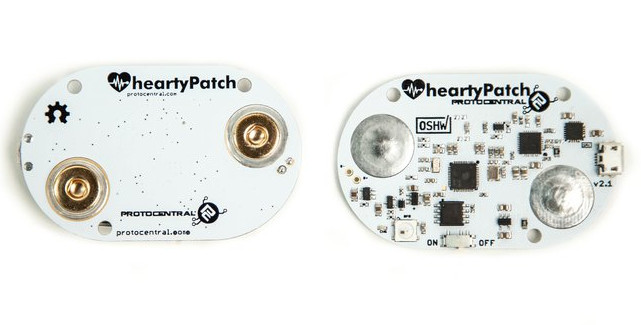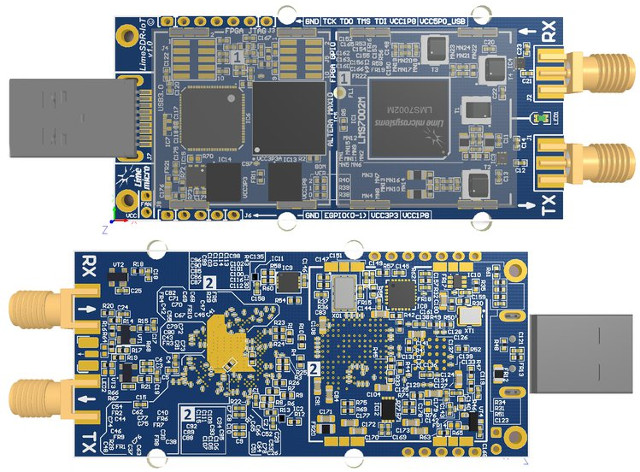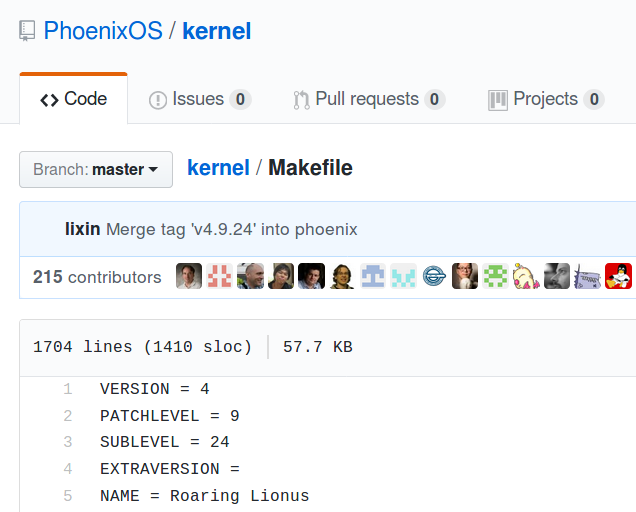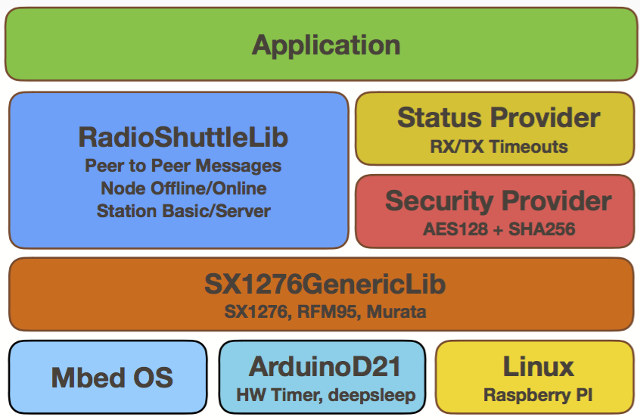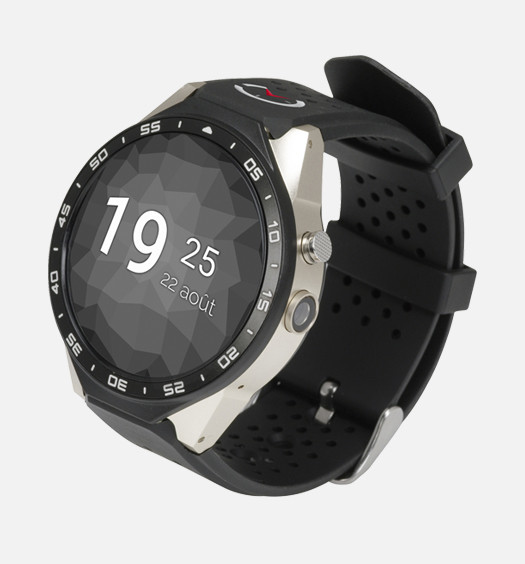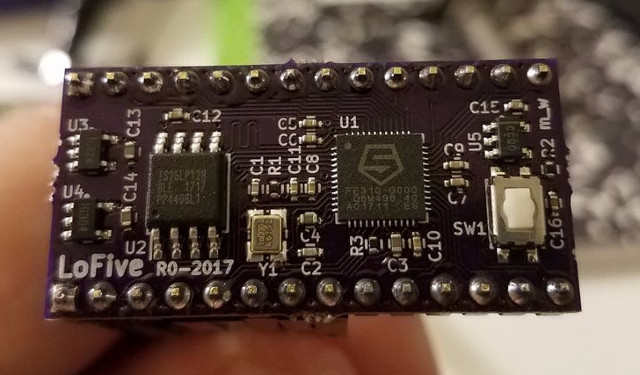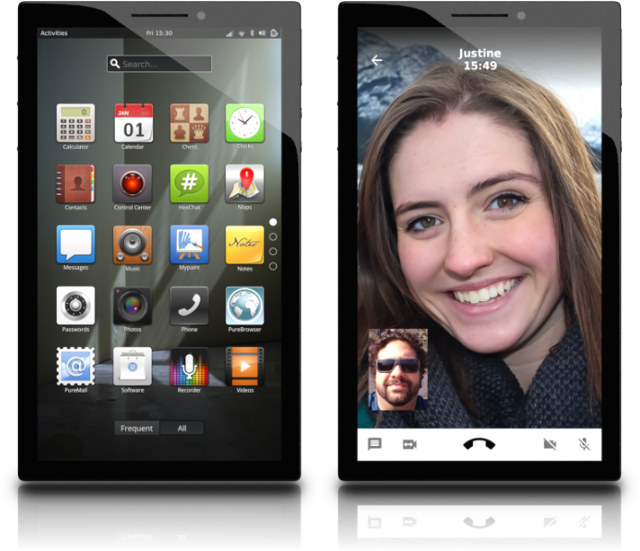Smart health gadgets will soon have a bigger part to play in our lives, especially for health monitoring. It mainly started with fitness trackers, but now we are starting to see connected devices such as blood pressure monitors, including the upcoming watch like Omron HeartVue, thermometer, scales, vital sign monitoring systems, certified medical SBC‘s to allow engineers to developer their own medical applications, and even open source surgical robots. HeartPatch is one of those medical board that specifically aims at measuring ECG data, and sent it over Bluetooth or WiFi thanks to Espressif ESP32 WiSoC. HeartPatch specifications: SoC – Espressif Systems ESP32 dual core Tensilica LX6 processor with Wi-Fi/Bluetooth ECG Chip – Maxim MAX30003 analog front-end USB – 1x micro USB connector for programming, data, power, and battery charging Debugging – USB-UART bridge based on CP2104 Misc – Onboard Snap-on Buttons for disposable electrode pads, RGB LED, Battery – 450 […]
LimeSDR Mini is a $135 Open Source Hardware, Full Duplex USB SDR Board (Crowdfunding)
LimeSDR open source hardware software defined radio was launched last year with the promise of integration with Ubuntu Snap Store allowing to easily download and install various radio implementations such as LTE, WiFi, Bluetooth, LoRa, etc… It was offered for $200 and up as part of a crowdfunding campaign, but Lime Microsystems is back on CrowdSupply with a cheaper and low end version aptly called LimeSDR Mini.LimeSDR mini specifications: FPGA – Intel Altera Max 10 (10M16SAU169C8G) with 16K Logic gates, 549 KB M9K memory, 2,368 KB user flash memory Storage – 4 MB flash memory for data; 2x128KB EEPROM for RF transceiver MCU firmware and data RF Lime Microsystems LMS7002M RF transceiver Tx & Rx SMA connectors Frequency range – 10 MHz to 3.5 GHz RF bandwidth – 30.72 Mhz Sample Rate – 30.72 MSps with 12-bit sample depth Power Output (CW): up to 10 dBm USB – 1x USB […]
Linux 4.9 Kernel Source Code Released for Phoenix OS Android Desktop Operating System
Phoenix OS is one of the last options left for people wanting to run Android with desktop optimizations on their computer. The problem is that so far, it was fully closed source, and the company refused to comply with the Linux kernel’s GPLv2 license, despite part of the project being based on Android-x86 work. The community also wanted to get involved to improve hardware compatibility with graphics cards, wireless modules / dongles, and other peripherals. However, without source code, nothing could be done, and a petition was launched on Change.org asking Chaozhuo, the company behind the project, to release the Linux kernel code. After over 300 signatures was reached in the petition, the company did push Linux 4.9.24 to Github, and after verifying there was indeed some changes compared to Android x86 kernel, the community declared victory. They are however trying to make the company develop the kernel in the […]
RadioShuttle Network Protocol is an Efficient, Fast & Secure Alternative to LoRaWAN Protocol
LoRaWAN protocol is one of the most popular LPWAN standards used for the Internet of Things today, but some people found it “lacked efficiency, did not support direct node-to-node communication, and was too costly and far too complicated for many applications”, so they developed their own LoRa wireless protocol software called RadioShuttle, which they claim is “capable of efficiently sending messages in a fast and secure way between simple LoRa modules”. Some of the key features of the protocol include: Support for secure or insecure (less time/energy) message transmission, multiple messages transmission in parallel Unique 32-bit device ID (device number) per LoRa member, unique 16-bit app ID (program number for the communication) Security – Login with SHA-256 encrypt password; AES-128 message encryption Air Traffic Control – Nodes only send if no LoRa signal is active on that channel. Optimized protocol – Message delivery within 110 ms (SF7, 125 kHz, free […]
Connect Watch Runs AsteroidOS Open Source Operating System (Crowdfunding)
At the beginning of last year, we discovered AsteroidOS (hobby) project aiming to provide a Linux based open source operating system working on some Android Wear smartwatches. At the time the OS relied on Android drivers working with libhybris, Qt5/QML for apps, and only supported LG G Watch. Since then, Florent Revest has continued development, with more watches being supported from Samsung, Asus, and other brands, and a French startup has decided to design and bring to market Connect Watch running AsteroidOS. Connect Watch specifications: SoC- Mediatek quad core processeur @ up to 1.39GHz MTK System Memory – 512MB or 1GB RAM Storage – 4 or 8GB flash Display – 1.39″ round Amoled display with 400×400 resolution Audio – Built-in speaker Connectivity Bluetooth Optional GSM ( 850/900/1800/1900MHz) and 3G WCDMA (850/2100MHz) support with nano SIM card slot GPS Camera – 2.0 MP; records to 720p Sensors – Heart rate monitor […]
LoFive is a Tiny Open Source Hardware Board based on SiFive FE310 RISC-V Open SoC
Do you remember HiFive1? It’s an Arduino compatible board based on the SiFive FE310 open source RISC-V SoC. Michael Welling has now started working on LoFive board using the same processor, but in a much smaller & breadboard friendly form factor. LoFive board specifications: MCU – SiFive Freedom E310 (FE310) 32-bit RV32IMAC processor @ up to 320+ MHz (1.61 DMIPS/MHz) Storage – 128-Mbit SPI flash (ISSI IS25LP128) Expansion – 2x 14-pin headers with JTAG, GPIO, PWM, SPI, UART, 5V, 3.3V and GND Misc – 1x reset button, 16 MHz crystal Power Supply – 5V via pin 1 on header; Operating Voltage: 3.3 V and 1.8 V Dimensions – 38 x 18 mm (estimated) The board will be programmable with Arduino IDE + Cinco just like HiFive1 board. The board is also open source hardware, so beside the aforelinked info on Hackster,io, you’ll also find the KiCAD schematics, PCB layout, and […]
Embedded Linux Conference & Open Source Summit Europe 2017 Schedule
The Embedded Linux Conference & IoT summit 2017 took place in the US earlier this year in February, but there will soon be a similar event with the Embedded Linux Conference *& Open Source Summit Europe 2017 to take up in Europe on October 23 – 25 in Prague, Czech Republic, and the Linux Foundation has just published the schedule. It’s always useful to find out what is being discussed during such events, even if you are not going to attend, so I went through the different sessions, and compose my own virtual schedule with some of the ones I find the most interesting. Monday, October 23 11:15 – 11:55 – An Introduction to SPI-NOR Subsystem – Vignesh Raghavendra, Texas Instruments India Modern day embedded systems have dedicated SPI controllers to support NOR flashes. They have many hardware level features to increase the ease and efficiency of accessing SPI NOR […]
Purism Librem 5 Open Source Linux Smartphone Focuses on Privacy (Crowdfunding)
Purism is computer manufacturer founded in 2014 whose mission is to “provide the highest quality hardware available, ensuring the rights of security, privacy, and freedom for all users”, and so far, they’ve delivered several Intel Core i5/i7 laptops running their PureOS Linux distribution based on Debian with an emphasis on privacy protection. The company has now launched a crowdfunding campaign on their own website to develop and manufacture Librem 5 Linux smartphone with the same philosophy. The phone will use open source software even for the GPU, so the company currently selected i.MX6 for the project since they can use etnaviv open source driver for the Vivante GPU, but they hope to switch to the more powerful i.MX8 processor for the final design, which explains why the hardware specifications are not set in stones yet: SoC- NXP i.MX6/i.MX8 CPU with Vivante GPU System Memory – 3GB LPDDR3 Storage – 32GB […]


